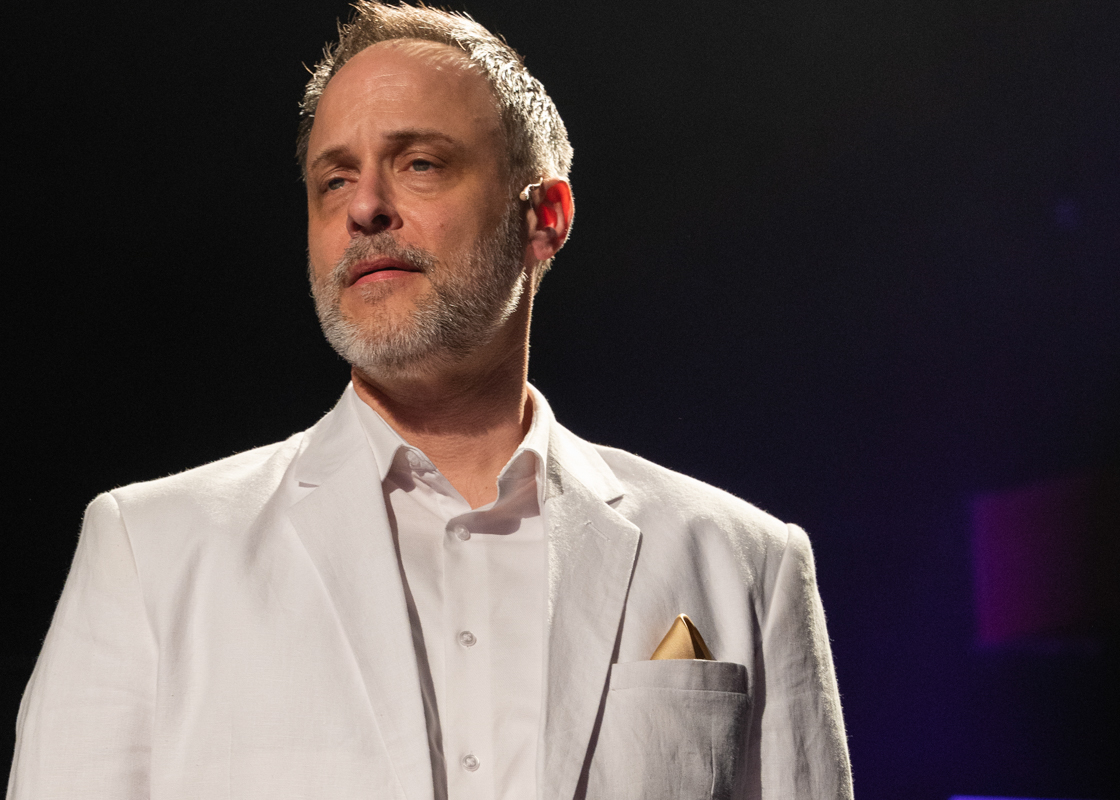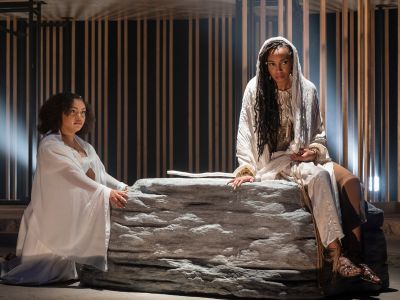ANTIGONE, Trauma, and Hope
Antigone is a loud play, full of argument. It swings into the heat of spoken battle the moment it begins, the moment that Antigone appears. An almost banal irony lies in her claim to Creon that “I was born to share in love (sunphilein), not hate (sunechthein).” In Greek, this sentence plays out in words that are themselves pleonastic: Antigone does not use the common words echthrein (“to hate”) and philein (“to love”), but extends each one with the prefix “sun” (“with”)—a usage that is coined for this moment and occurs nowhere else in classical Greek literature. Nick Rudall translates this line with the additional phrase “to share in,” but the genius of the statement lies in how Antigone stretches the words beyond their logical meaning so that her two new verbs—“share in hate,” “share in love”—are shown to share in each other’s domains, with hate and love growing into overlapping orbs and meeting in the middle in the Venn diagram that is Sophocles’s Antigone.
This is a brilliant reworking of language, too, because it is plain to see that love is both an honest, passionate reality to Antigone and one that plays out only in anguish. The very first scene of the play demonstrates this situation when Ismene warns Antigone against “seek[ing] what cannot be done,” and Antigone retorts, “If that is what you believe, I shall be the first to hate you, then the dead, your brother Polyneices, with justice will hate you too.” How does Antigone end up loathing her previously beloved sister Ismene in under one hundred lines? And how does she also claim the right to inflict the animosity of the dead alongside her own?

Creon, for his part, launches himself into the play with bromides of triumph and joyous patriarchal harmony, but is quickly provoked to paranoid fury by the mere ramblings of a charming guardsman. After all, these are tortured people: Antigone to be sure, but Creon too; the two of them are reflectively bound together and inexorably set at odds. There is a reasonable logic to it. Behind them and their fiery gestures lie long, desolate histories of contorted and fractured kinship. It is important to remember that the play dawns on Thebes in the aftermath of ceaseless catastrophes. These characters are creeping in their petty pace within a cul-de-sac at the end of a road of attempted infanticide, patricide, incest, eye-gouging, suicide, internecine warfare, child sacrifice, and co-fraternal murder.
All the newest science on trauma tells us what all the ancient tragedies did as well: that to be traumatized is to have your brain’s present tense be stuck in the past. A New York Times headline from November 30 of last year proclaims: “Brain Study Suggests Traumatic Memories Are Processed as Present Experience.” In a new paper, it is reported, scientists deduced from brain scans of people with PTSD that “traumatic memories are not experienced as memories as such,” but as “fragments of prior events, subjugating the present moment.” I think it is not wrong to see both Antigone and Creon as traumatized souls, each cognitively trapped in the battles of the past and, through their reactions to one another, inflicting them onto present realities. In this way, they transform their new realities into battles too, ones that continue the battles of the past as if they never ended. Hence, both of them insistently choose death, again and again, as if there were no other choice.
And yet the virtuosity of Sophocles’s portraits of his two protagonists lies in the fact that no such explanation is required: one need not know the twisted backstory of the Labdacid family or even notice that these folks are waking up the very morning after a civil war. Antigone and Creon are both instantly credible as people simply being themselves, trauma or no trauma. Antigone is easily recognizable as a paradigm of zealous, righteous youth (a strictly age-bound state of existence). Creon is similarly familiar as an image of supremely self-protective authority (almost the only kind of authority of which I am aware). Thus it is all the more horrifying how plausibly and smoothly they are drawn into the fervent tango through which they jointly smash their world to pieces all over again.

In the face of such pain, does the Antigone offer any hope? It is a Greek tragedy, so it need not, but other tragedies do where you may least expect it. Sophocles’s Oedipus Rex – written after Antigone but set earlier in the trilogy – suggests that there is vitality even in disaster: we see it in Oedipus’ fervent hunt for knowledge, which turns into a drive also for self-knowledge. Perhaps more critically, there is hope in Oedipus Rex, simply in the solicitous care that the characters pay to one another—Jocasta, the shepherd who saved Oedipus, even Creon— even in the face of ever-growing horror. One has to look harder still for hope in Antigone, for this is a play that destroys its youthful passionate warrior, that turns its king into nothing, his fate into dust, and that adds the additional body count of his besotted son and grief-stricken wife. Perhaps hope is not to be found in the play at all, so much as in the fate of its audience. Does it not make Ismenes of us all, compelling us to seek to make sense of what’s left, to hope for a path toward reconciliation before it is too late, and even after? Let us remember that of the entire patrilineal line of Oedipus, it is only Ismene who survives. She is as broken as anyone else on stage, and yet is somehow still capable of loving in that old, antiquated way: tried and true.
Sarah Nooter is a professor in the Department of Classics, Theater and Performance Studies, and the College at the University of Chicago. Her books include When Heroes Sing: Sophocles and the Shifting Soundscape of Tragedy (Cambridge University Press, 2012; pb 2016), The Mortal Voice in the Tragedies of Aeschylus (Cambridge University Press, 2017; pb 2022), and most recently Greek Poetry in the Age of Ephemerality (Cambridge University Press, 2023, pb 2024). She is also co-editor with Shane Butler of Sound and the Ancient Senses (Routledge, 2018) and co-editor with Mario Telò of Radical Formalisms: Reading, Theory, and the Boundaries of the Classical (Bloomsbury, 2024). She also has a volume of translation coming out this spring called How to Be Queer: An Ancient Guide to Sexuality (Princeton University Press). Professor Nooter is Editor-in-Chief of Classical Philology, the coordinator of the Poetry and the Human sequence in the Humanities Core, and a faculty adviser to Court Theatre.